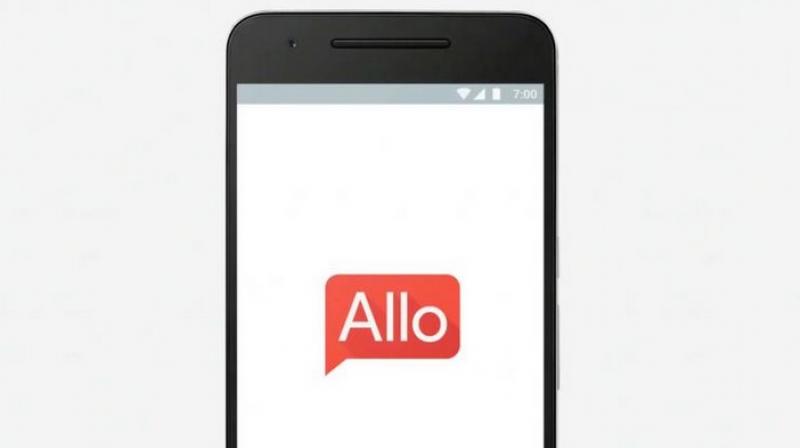Google Allo: Not all chats will be E2E encrypted
Google first announced Allo at I/O conference earlier this year.

On September 21, Google rolled out a new AI-centric messaging app, named Allo which can run on both Android and iOS platforms. Google began offering the highly anticipated app at a time when players like WhatsApp, Facebook’s Messenger, and Apple’s iMessage has already established themselves as a popular alternative to the traditional text message service.
Allo has been termed as WhatsApp’s new competitor with its ability to let people chat and make plans, using artificial intelligence integrated within the app. However, unlike WhatsApp Allo has missed out a major feature—the end-to-end encryption.
In April 2016, WhatsApp made its messaging apps E2E encrypted. What it means is that conversation of around one billion people using the service is secure, no one can see inside the message: no cyberciminal, no government agency and not even WhatsApp itself. But, what about Allo?
When Google first announced Allo at I/O conference earlier this year it planned to introduce E2E encryption in “Incognito Mode” and assured that the app would only store message transiently, rather than indefinitely. However, when Allo was launched, Google's plans to store all conversation (not started under the incognito mode) was revealed.
“The version of Allo rolling out today will store all non-incognito messages by default — a clear change from Google’s earlier statements that the app would only store messages transiently and in non-identifiable form,” reported The Verge.
In fact, former CIA (Central Intelligence Agency) contractor Edward Snowden posted a series of tweets warning everyone not to use the app. “What is #Allo? A Google app that records every message you ever send and makes it available to police upon request,” he posted.
Google earlier messaging services, such Hangouts and Gmail do offer encryption between the device and Google server. The conversation done using either of these services is stored on Google’s server using encryption, but the messages are still accessible to Google’s algorithm. And now, Google seems to make Allo work on the same guidelines, as Hangout and Gmail has been working.
Google claimed the change was made to improve the “Smart Reply” feature, which has been introduced to deliver quick conversation. The feature can guess answers and response to messages with just a tap of button. For instance, if a friend asks you how you're doing, the app will make a suggestion; say “Good tnx”. You can tap on it and it will be sent as your reply. Google said with more data available with them they will be able to make the app more efficient.
However, with this move the company would actually be making a compromise to customers’ privacy. Thus, by default Allo’s conversation will be accessible to lawful requests, and Google may need to hand over the information to government when asked.
Though, Google has mentioned on its blog that subpoenas are not sufficient to obtain information, “We believe a warrant is required by the Fourth Amendment to the US Constitution,” reads Google post, but in the past there have been instances where agencies have used various ways to dig information when it required, as it happened at time of unlocking the iPhone of the San Bernardino gunman case, and WhatsApp temporary ban in Brazil.
Taking into account such past incidents, it is yet to see till what time Google Allo will be able to prevent itself from sharing on users’ data when asked, especially under lawful requests.

